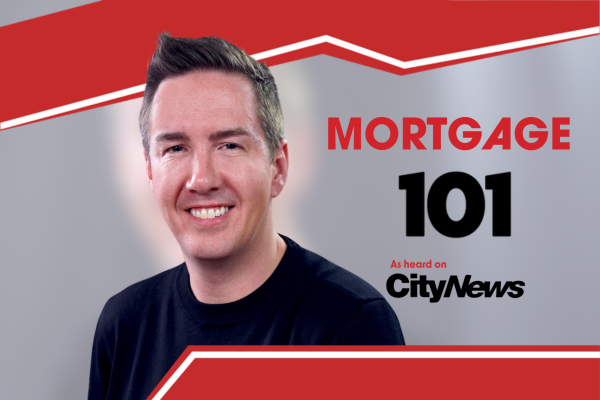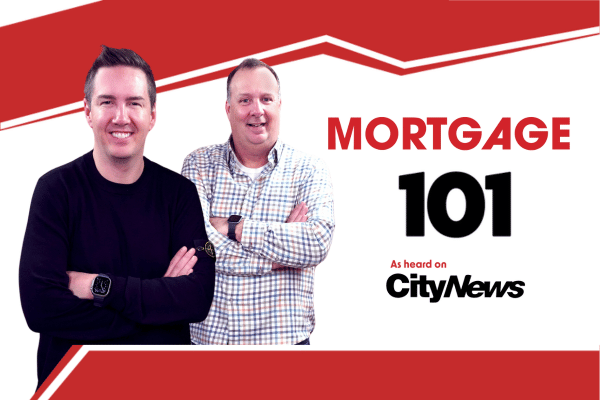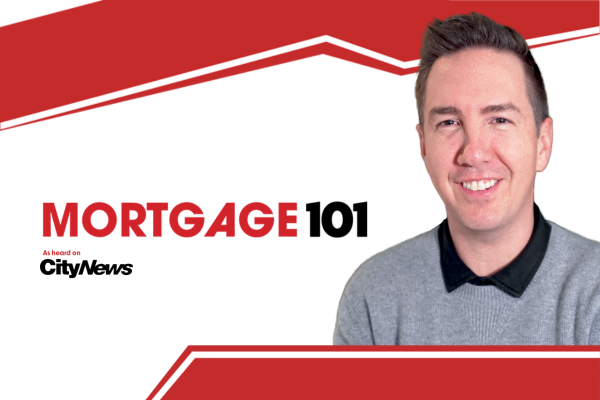What are the implications of the 30-year mortgage? Clinton and Todd sit down this episode and chat a bit more in-depth about what the 30-year mortgage means for first time homebuyers, noting the need for affordable housing options in the region, especially in urban centers like Halifax. Clinton emphasizes the importance of builders offering spec homes to cater to first-time buyers, advocating for standardized, cost-effective builds to reduce market competition and stress for buyers.
Mortgage 101 – all you need to know about a refinance | January 2022 Part 4
In this episode of Mortgage 101 with Clinton Wilkins and Todd Veinotte, as heard on CityNews 95.7, the guys drill down into everything you need to know about a refinance. Should you refinance mid-term or at renewal? Should you refinance with your existing lender or with a new lender? Is ‘COIVD pricing’ the value used for the market value of a home? Who pays for appraisals? Why would someone choose to not do a refinance? If you can believe it, Todd and Clinton answer all these questions, and more, in the video, transcript and podcast below.
Mortgage 101 with Clinton Wilkins & Todd Veinotte: All you need to know about a refinance
Don’t feel like watching the video? Check out the transcript below.
Transcript:
Refinance mid-term or at renewal?
Todd Veinotte: [00:00:00:03] All right, let’s talk refinance, how’s that sound?
Clinton Wilkins: [00:00:02:06] Yeah, it sounds great.
Todd Veinotte: [00:00:02:29] All right, so what are some of the key things that people need to know about refinancing? What are some, let’s go Refinancing 101.We talked credit, obviously. We talked 80 per cent of the value, but what are some things that fundamentally people need to know about?
Clinton Wilkins: [00:00:19:26] So I think one thing that they need to think about is, you know, the penalty coming out of their existing terms. So are you doing a refinance when it comes up for renewal or are you going to do a refinance kind of mid-term? So I think if it’s mid-term, you need to think about what the penalty is and does your savings kind of offset that cost. So I think that’s one thing to think about.
Refinance with the existing lender or a new one?
And sometimes it depends. Like, we deal with a variety of different lenders and sometimes we’ll do a refinance with the existing lender and sometimes they can get a bit of a break. It kind of depends. Sometimes existing lenders are less apt to sometimes want to do a refinance file because they’re like, “Why should I take on more debt for this borrower?”
Todd Veinotte: [00:01:00:10] They have their business.
Clinton Wilkins: [00:01:01:10] “We already have their business. Why should we advance more credit?” I sometimes feel like a new lender is a little bit more motivated to help in a refinance situation than maybe the existing lender. I mean, we deal with a variety of different lenders every single day, so. And some lenders have some sometimes promotions on refinances where maybe they’ll cover some of the fees in terms of doing the transaction. So that’s interesting.
Refinance because you have a need to
And, you know, with a with a refinance like sometimes we’ll, you know, change the amortization. So sometimes we’ll reduce the amortization to help borrowers pay off their debt quicker.
Sometimes we’ll extend the amortization. It really depends on, you know, really the financial situation of the borrower at that time. And, you know, with the mortgage lending, it is a snapshot in time.
So we look at the income, we look at the assets and we look at the credit and then we can make a real good recommendation on what the best way to move forward is.
Todd Veinotte: [00:01:53:25] Why would somebody refinance mid-term, I guess?
Clinton Wilkins: [00:01:57:01] You know, I think a refinance mid-term, there is probably a need, you know? Maybe there’s a need to clean up some of that unsecured debt.
Maybe there’s a need to renovate the home for whatever reason. Maybe there is a need to lower the interest rate. Maybe there’s a need to lengthen the amortization. There’s a lot of reasons why people will do what refinance. And there’s not just one, right?
Refinances are more reliant on the property
Todd Veinotte: [00:02:19:10] What are some key things that people need to have in place? Because people need to realize when you are refinancing, you need to have all of the same things that you needed it when you get the mortgage initially, right?
Clinton Wilkins: [00:02:28:05] Yeah, it’s the exact same underwriting.
Todd Veinotte: [00:02:30:26] Same thing.
Clinton Wilkins: [00:02:31:17] Yeah, it definitely is. The one thing that you don’t go through when you do a refinance is refinances are not CMHC or high ratio insurable. So when you do a refinance, you’re really doing a conventional mortgage and that is really reliant on the property, maybe sometimes more so.
Oftentimes in a refinance, you do need a full appraisal, and that’s something that we would order. Based on the joys of technology and all the data that we have available to us, there are some low ratio valuation systems that lenders do access, which can be really slick. Like, sometimes we can get an approval and that valuation all together in one, and that will save the borrower some time, but also some money in terms of doing that, you know, appraisal.
Eighty per cent of the market value and ‘COVID pricing’
When you’re doing a refinance as a maximum of 80 per cent of the market value of the home. So that’s a market value and that really means what you think your home is going to sell for.
And that’s one thing I always ask borrowers when they want to do a refinance: What do you think your home is going to sell for. And they’re like, “Is this COVID pricing or is this like regular pricing?” I’m like, “I think COVID pricing is the regular pricing now.” And I think that’s something that we kind of need to just come to reality and come to grips with. So it’s 80 per cent of what the market value is.
Clinton Wilkins: [00:03:46:28] And then, you know, maybe we advance all of those funds. You know, some lenders will offer a collateral charge type product where maybe we can break it down into a couple of different mortgages and maybe we can break it down for a home equity line of credit and stuff like that. And we can, you know, really talk to the borrower about what is the need for the refinance and we can give some advice.
Buying a second property with a principal property refinance
People sometimes say, “Hey, I want to do this refinance of my principal residence to buy another property.” Sometimes people will leverage that equity to buy a rental property, or maybe they want to buy maybe a second home. So that’s a big one.
And sometimes we’ll do both of those transactions concurrently. Sometimes we’ll do the refinance and the principal residence first, because you really sometimes need to get every dollar you can out of it. And if you’re making an offer on a property, you’re kind of really need to know how much equity you’re going to have to work with for the new one. So sometimes we’ll do that transaction first, but sometimes we’ll do them concurrently.
And, you know, we’ll get the approval of the refinance and the approval of the mortgage on the purchase file done. It’s still two separate mortgages. It’s still on two separate properties. They’re not interconnected, but the proceeds from one transaction from that refi transaction would cover the down payment and the closing costs for the new one, we actually do that quite often.
Paying for appraisals
Todd Veinotte: [00:05:03:05] Who pays for the appraisal?
Clinton Wilkins: [00:05:05:00] It depends. Oftentimes, the borrower will pay. In some scenarios, lenders will have like promotions where they will reimburse the borrower for the cost on closing. But usually, if there is a full appraisal required, in most cases, the borrower pays upfront. Because, you know, lenders need to know that the borrower has a little bit of skin in the game. You know, this is a big financial transaction.
Todd Veinotte: [00:05:28:29] That’s right.
Todd Veinotte: [00:05:30:02] And sometimes an appraisal can make or break a transaction, too. Because, you know, the property condition, the property value, there’s a lot of nuances that you know, really come in that appraisal that the lenders do kind of rely on as their security.
Todd Veinotte: [00:05:46:00] So how much typically would an appraisal cost? What would type of cost?
Clinton Wilkins: [00:05:50:09] I think it depends on, you know, what type of property your refinancing. You know, if it’s a single family home, appraisals can be anywhere from, you know, $300, $400 or $500.
I think, you know, when you’re looking at a rental property, sometimes it can be more. If the property is in a more rural area, and you know, in Nova Scotia, we have a lot of rural areas, sometimes there’s additional costs for travel for the appraisers.
You know, as you can imagine, there’s probably the most amount of appraisers in Halifax. But if you’re looking to do a transaction in a more rural area, there might not be as many appraisers in that area that lenders do use.
Why someone might not do a refinance
Todd Veinotte: [00:06:21:12] Is there some risk in refinancing in that perhaps your credit isn’t what it was? Or might you potentially, and people may look at that and say, “Maybe it’s not a good time to refinance. Maybe you just let the mortgage renew.”
Clinton Wilkins: [00:06:35:20] I think in some cases, yeah, people don’t do a transfer out of their existing lender and they don’t do a refinance because maybe the income has taken a hit, or maybe the credit’s taken a hit. But I think it’s worth it to kind of get a second opinion, and a no from one lender doesn’t mean that it’s a dead deal.
And, you know, we often see clients that come in from other financial institutions that, you know, they weren’t able to get approved for whatever reason. And you know, every lender has a different kind of matrix of what they will accept.
And I think that’s why mortgage brokers are really, you know, the best solution because we have access to so many different lenders that if it doesn’t work with one lender, maybe we can do it with a different lender or maybe we can position it a different way, or maybe we can do it with an alternative lender, or maybe we can look at a second mortgage for a temporary, you know, period of time? But we can look at the whole picture.
You need to have equity to do a refinance
Todd Veinotte: [00:07:30:01] But what one thing you have to have, though, you have to have the equity in your property.
Clinton Wilkins: [00:07:33:13] If you don’t have the equity, you can’t refinance.
Todd Veinotte: [00:07:35:25] Forget it, right?
Clinton Wilkins: [00:07:36:29] Like, sometimes I’ll get a call, you know, a year later from someone who bought a home and they put down five per cent. And then they got the high ratio insurance from the Canadian Mortgage and Housing Corporation, Genworth, or Canada Guarantee. Then they want to do a refinance. I’m like, “Well, what’s the property value?” And they’re like, “Well, I bought it for $500,000, I think is worth about $525,000 now.” I’m like, “Okay, I think for you to get like a refinance and like, get any equity out of the property, the property needs to be worth like, much, much more.”
Todd Veinotte: [00:08:03:02] Yeah.
Clinton Wilkins: [00:08:03:14] You know what I’m saying?
Todd Veinotte: [00:08:04:09] Yeah, absolutely.
Next up: Fixed-rate vs variable-rate
Clinton Wilkins: [00:08:05:20] And you know, the other thing, I think if you’re going to do a refinance mid-term, typically the penalties are lower coming out of a variable-rate. So I think that’s one thing that, you know, we’ll certainly talk about, you know, in the coming in the future shows. We’re going to talk a lot about variable-rates, why they make sense. And for me, I always say, friends, don’t let friends take a fixed-rate.
Todd Veinotte: [00:08:28:07] How do people get a hold of you?
Clinton Wilkins: [00:08:29:23] You can visit us online. It’s a great place to start at TeamClinton.ca/radio. Lots of great information. We have hundreds of blog posts about a variety of different topics and about Merry Debtmas, so certainly check us out online. It’s a great place to start.
Todd Veinotte: [00:08:42:19] Do you have any closing comments for our listeners in Halifax and Ottawa?
Clinton Wilkins: [00:08:45:19] Well, again, happy New Year. I know we’re halfway through the month of January, but February is right around the corner. We’re positive. You know, we’re happy that people are tuning in. We’re happy that this is our fourth year doing Mortgage 101 and we want to welcome our listeners in Ottawa and welcome back those listeners here in Halifax.
Todd Veinotte: [00:09:07:23] All right. Great stuff. It’s Mortgage 101. Clinton Wilkins and myself, Todd Veinotte. We will be on the air all year long. Thanks for listening, folks.
If you have any questions, get in touch with us at Clinton Wilkins Mortgage Team! You can call us at (902) 482-2770 or contact us here.


